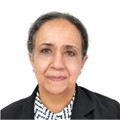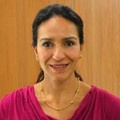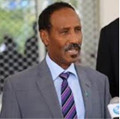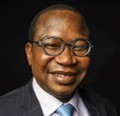Pivotal Moments: Effective Engagement in Fragile States

IMF SEMINAR EVENT
DATE: October 17, 2019
DAY: Thursday
10:30 AM - 11:30 AM
LOCATION: IMF HQ1, Meetings Halls A&B (HQ1-3-430 A&B)
How can the international community engage fragile states? International journalist Rachelle Akuffo presents key takeaways of the seminar.
Overview
While their circumstances vary, fragile states are often characterized by weak institutions that fail to reliably deliver economic growth for their populations. How can national factors and the international community speed the path to resilience?
Join the conversation via #FragileStates #IMFCapDev
Pivotal Moments: Effective Engagement in Fragile States
KEY POINTS
- Pivotal moments. Panelists agreed that while such moments are easier to identify in retrospect, they occur when the whole society recognizes the need for transformative action. Besley highlighted that they often occur in transitional times, such as at the time of a peace settlement or regime change. Beileh noted that for Somalia, a pivotal moment came in 2012, when, for the first time in twenty years, Somalia established a recognized government.
- Steps to address fragility. Beileh stressed the importance of sound governance, trust of citizens, and support from the international community in addressing fragility. Ncube highlighted the need for a holistic approach to improve governance and enhance institutions, while strengthening sectors that are key sources of growth. Al-Soswa and Ash underscored the key role that women, once engaged, can play in providing solutions to fragility.
- International community. Panelists agreed that the issues faced by fragile states require strong involvement by donors and IFIs. Ash and Al-Soswa highlighted the criticality of a development mindset in IFIs to address the complex needs of fragile states in an inclusive way. Furusawa noted that the IMF is strengthening its engagement with fragile states, through financial support, policy advise, and capacity building. Ash and Besley stressed that the brightest and best IMF staff should work on issues related to fragile states. Al-Soswa and Ash noted that solutions take time and Beileh stressed that without the IMF, the progress made in Somalia would have taken much longer.
Panelists
Opening Remarks: Mitsuhiro Furusawa
 Mitsuhiro Furusawa was appointed Deputy Managing Director of the International Monetary Fund on March 2, 2015. Previously, Mr. Furusawa was Special Advisor to the Prime Minister and to the Minister of Finance in Japan. Mr. Furusawa served as Executive Director for Japan at the International Monetary Fund from 2010 to 2012. He has served as Vice Minister for International Affairs at the Finance Ministry, and held various diplomatic positions. Mr. Furusawa studied Law at the University of Tokyo, and is also a graduate of France's Ecole Nationale d'Administration.
Mitsuhiro Furusawa was appointed Deputy Managing Director of the International Monetary Fund on March 2, 2015. Previously, Mr. Furusawa was Special Advisor to the Prime Minister and to the Minister of Finance in Japan. Mr. Furusawa served as Executive Director for Japan at the International Monetary Fund from 2010 to 2012. He has served as Vice Minister for International Affairs at the Finance Ministry, and held various diplomatic positions. Mr. Furusawa studied Law at the University of Tokyo, and is also a graduate of France's Ecole Nationale d'Administration.
Moderator: Rachelle Akuffo
 America in February 2012 and has interviewed a range of CEOs and leading newsmakers and reported on some of the world’s most pressing issues. Rachelle also launched the show’s award-winning startups segment, Starting Block. Ms. Akuffo began her career as a radio journalist in England and went on to work as an anchor and reporter for Swiss bank Dukascopy, covering market-moving financial news. She was also a correspondent for the millennial-focused digital news service, OneMinuteNews. Ms. Akuffo has received several accolades including one from Digital Hollywood for her coverage of the 2008 U.S. elections and a 2015 Clarion Award for her reporting on the struggles of Latina entrepreneurs. A strong proponent of volunteerism, Ms. Akuffo was crowned Miss Ghana International in 2005 which gave her a unique platform for charitable projects in health, education and business. She has also lent her services as a newsreader for the blind. Ms. Akuffo is an alumnus of Howard University in Washington D.C. and of London’s Brunel University.
America in February 2012 and has interviewed a range of CEOs and leading newsmakers and reported on some of the world’s most pressing issues. Rachelle also launched the show’s award-winning startups segment, Starting Block. Ms. Akuffo began her career as a radio journalist in England and went on to work as an anchor and reporter for Swiss bank Dukascopy, covering market-moving financial news. She was also a correspondent for the millennial-focused digital news service, OneMinuteNews. Ms. Akuffo has received several accolades including one from Digital Hollywood for her coverage of the 2008 U.S. elections and a 2015 Clarion Award for her reporting on the struggles of Latina entrepreneurs. A strong proponent of volunteerism, Ms. Akuffo was crowned Miss Ghana International in 2005 which gave her a unique platform for charitable projects in health, education and business. She has also lent her services as a newsreader for the blind. Ms. Akuffo is an alumnus of Howard University in Washington D.C. and of London’s Brunel University.
Panelist: Amatalalim Ali Al-Soswa
 Amatalalim Ali Al-Soswa’s experience includes over 25 years of proven high level governmental, nongovernmental, international and regional experience in peace building, human rights, inclusive governance, gender equality, and development. She served the Government of Yemen in various capacities including as the first woman Minister of Human Rights, Ambassador to the Netherlands, Sweden, and Denmark, Undersecretary and Assistant Deputy-Minister of Information and Managing Director of The Executive Bureau for the Acceleration of Aid Absorption & Support for Policy Reforms in Yemen. She also participated in Yemen’s National Dialogue Conference. For over six years, Amat served as UN Assistant Secretary General, UNDP Assistant Administrator, and Regional Director of the Arab States Bureau. More recently, she has consulted with the World Bank, on fragility, peace building, gender equality and human rights.
Amatalalim Ali Al-Soswa’s experience includes over 25 years of proven high level governmental, nongovernmental, international and regional experience in peace building, human rights, inclusive governance, gender equality, and development. She served the Government of Yemen in various capacities including as the first woman Minister of Human Rights, Ambassador to the Netherlands, Sweden, and Denmark, Undersecretary and Assistant Deputy-Minister of Information and Managing Director of The Executive Bureau for the Acceleration of Aid Absorption & Support for Policy Reforms in Yemen. She also participated in Yemen’s National Dialogue Conference. For over six years, Amat served as UN Assistant Secretary General, UNDP Assistant Administrator, and Regional Director of the Arab States Bureau. More recently, she has consulted with the World Bank, on fragility, peace building, gender equality and human rights.
Panelist: Nazanin Ash

Nazanin Ash is the Vice President of Global Policy and Advocacy at the International Rescue Committee. The International Rescue Committee is a global humanitarian aid organization that offers emergency aid and long-term assistance to people in crisis in over 40 countries and resettles refugees in 28 U.S. cities. Nazanin oversees the organization’s policy and advocacy efforts, which draw on the learning and experience of IRC humanitarian and resettlement programming to shape policy and practice.
Prior to this role, she was a policy fellow at the Center for Global Development, where she focused on aid effectiveness and political and economic reform in the Middle East. Previously, she served as deputy assistant secretary in the Bureau of Near Eastern Affairs at the U.S. Department of State, leading the U.S. government’s Middle East Partnership Initiative. Her U.S. government experience also includes serving as a member of the Secretary of State’s policy planning staff, Chief of Staff to the first Director of Foreign Assistance and Administrator of the U.S. Agency for International Development, and a White House Fellow. She holds an MPP from Harvard Kennedy School of Government and a BA in political science from Bryn Mawr College.
Panelist: Abdirahman Duale Beileh
 Abdirahman Duale Beileh is a Somali economist, professor, politician, philanthropist, poet. In March 2017, Beileh was named Minister of Finance by Somalia's Prime Minister Hassan Ali Khayre. Previously He served as the Minister of Foreign Affairs and International Cooperation of Somalia from January 2014 to January 2015. Beileh earned a bachelor's degree, an MBA, and a PhD from the University of Wisconsin–Madison.
Abdirahman Duale Beileh is a Somali economist, professor, politician, philanthropist, poet. In March 2017, Beileh was named Minister of Finance by Somalia's Prime Minister Hassan Ali Khayre. Previously He served as the Minister of Foreign Affairs and International Cooperation of Somalia from January 2014 to January 2015. Beileh earned a bachelor's degree, an MBA, and a PhD from the University of Wisconsin–Madison.
Panelist: Timothy Besley
 Timothy Besley is School Professor of Economics and Political Science and W. Arthur Lewis Professor of Development Economics at the London School of Economics and Political Science (LSE). From September 2006 to August 2009, he served as an external member of the Bank of England Monetary Policy Committee and since 2015 has been a member of the UK’s National Infrastructure Commission. His research, which mostly has a policy focus, is mainly in the areas of Development Economics, Public Economics and Political Economy.
Timothy Besley is School Professor of Economics and Political Science and W. Arthur Lewis Professor of Development Economics at the London School of Economics and Political Science (LSE). From September 2006 to August 2009, he served as an external member of the Bank of England Monetary Policy Committee and since 2015 has been a member of the UK’s National Infrastructure Commission. His research, which mostly has a policy focus, is mainly in the areas of Development Economics, Public Economics and Political Economy.
Panelist: Mthuli Ncube
 Mthuli Ncube was appointed Minister of Finance of Zimbabwe on 7 September 2018. Previously positions include: the Chief Economist and Vice President of the African Development Bank (AfDB), dean and professor of finance at Wits Business School, dean of the faculty of Commerce, Law and Management at the University of the Witwatersrand(Wits). Ncube was also a regulator and a board member of the South African Financial Services Board (FSB). He holds a PhD in Mathematical Finance from Cambridge University.
Mthuli Ncube was appointed Minister of Finance of Zimbabwe on 7 September 2018. Previously positions include: the Chief Economist and Vice President of the African Development Bank (AfDB), dean and professor of finance at Wits Business School, dean of the faculty of Commerce, Law and Management at the University of the Witwatersrand(Wits). Ncube was also a regulator and a board member of the South African Financial Services Board (FSB). He holds a PhD in Mathematical Finance from Cambridge University.







